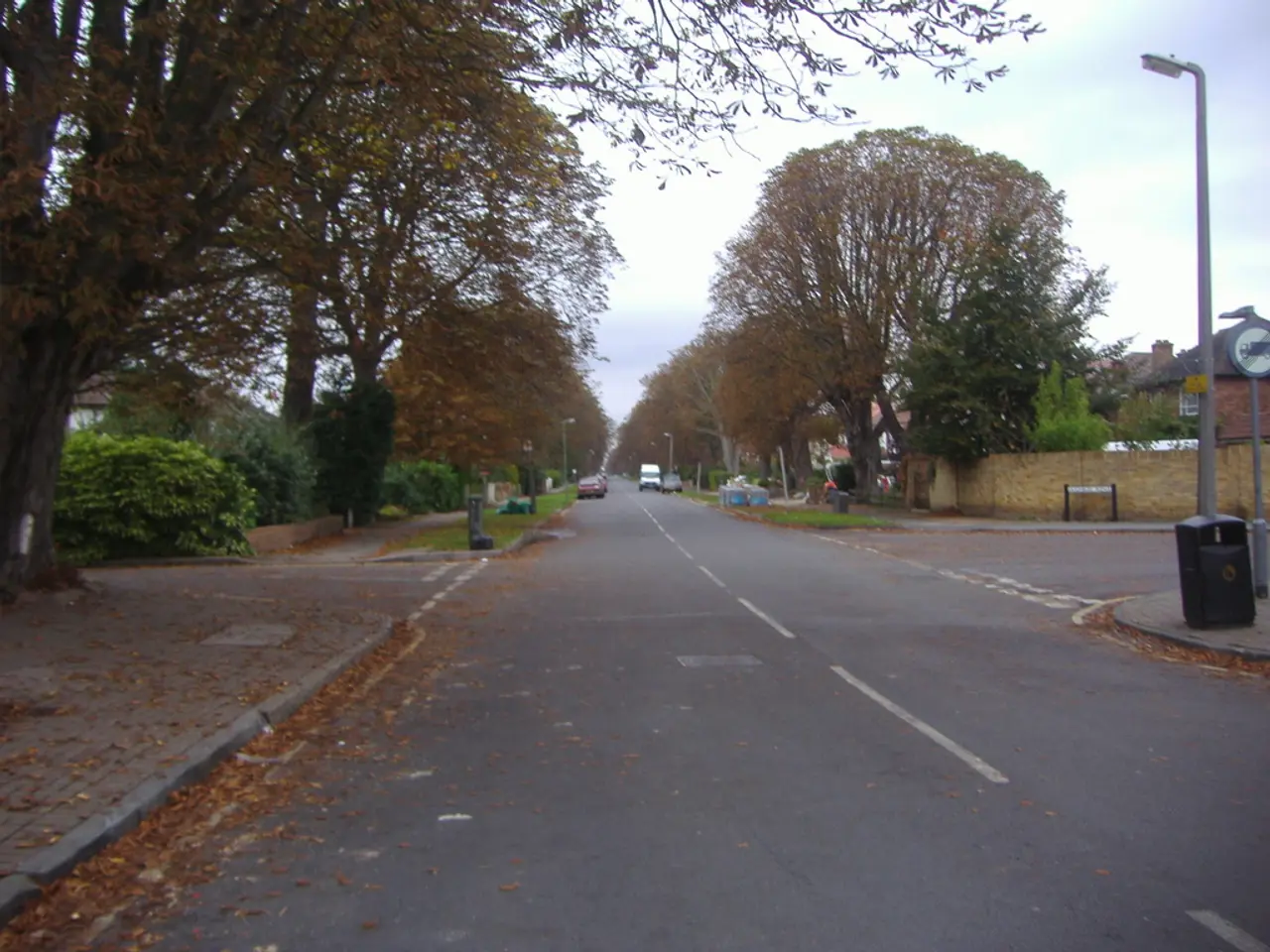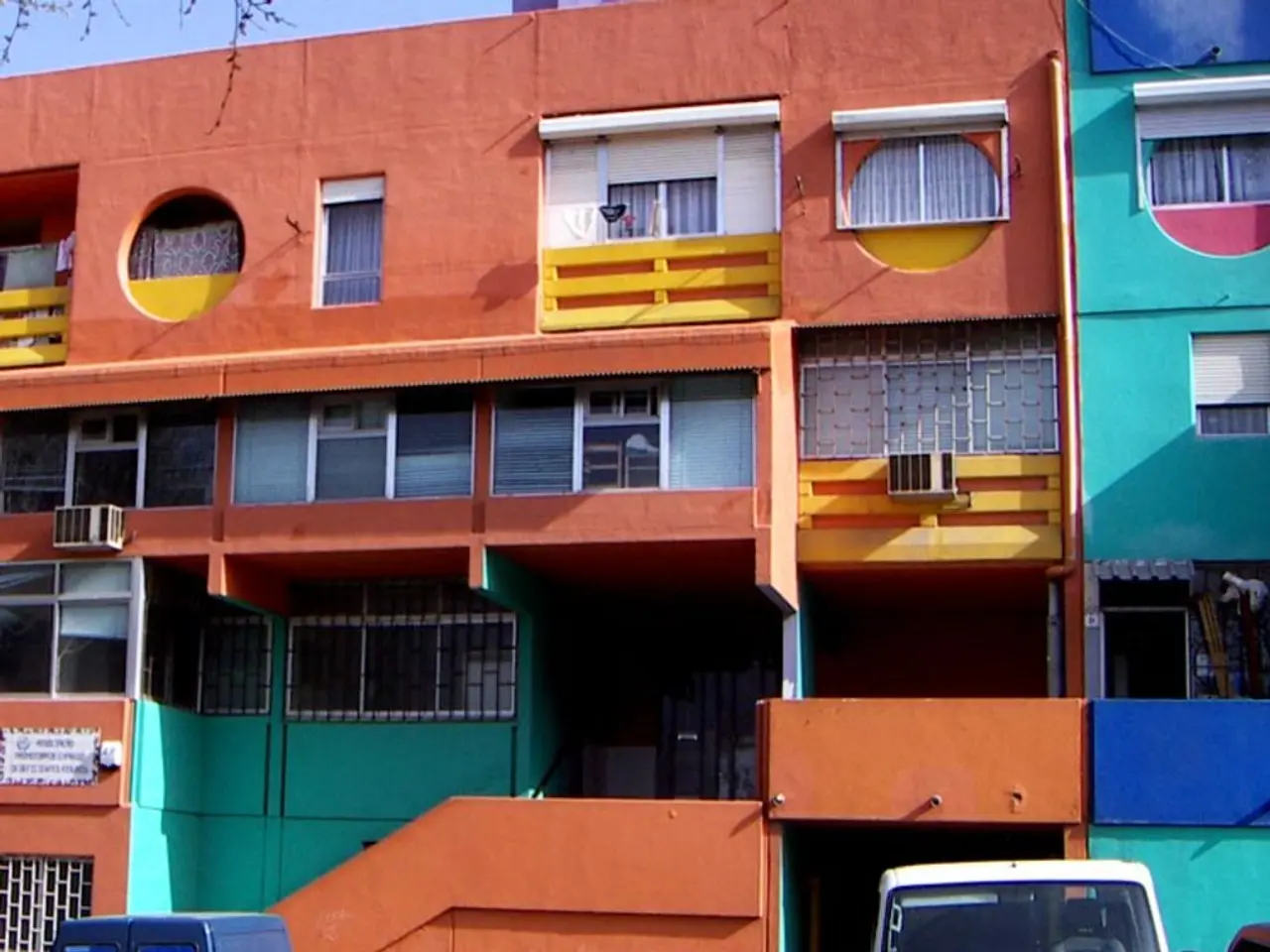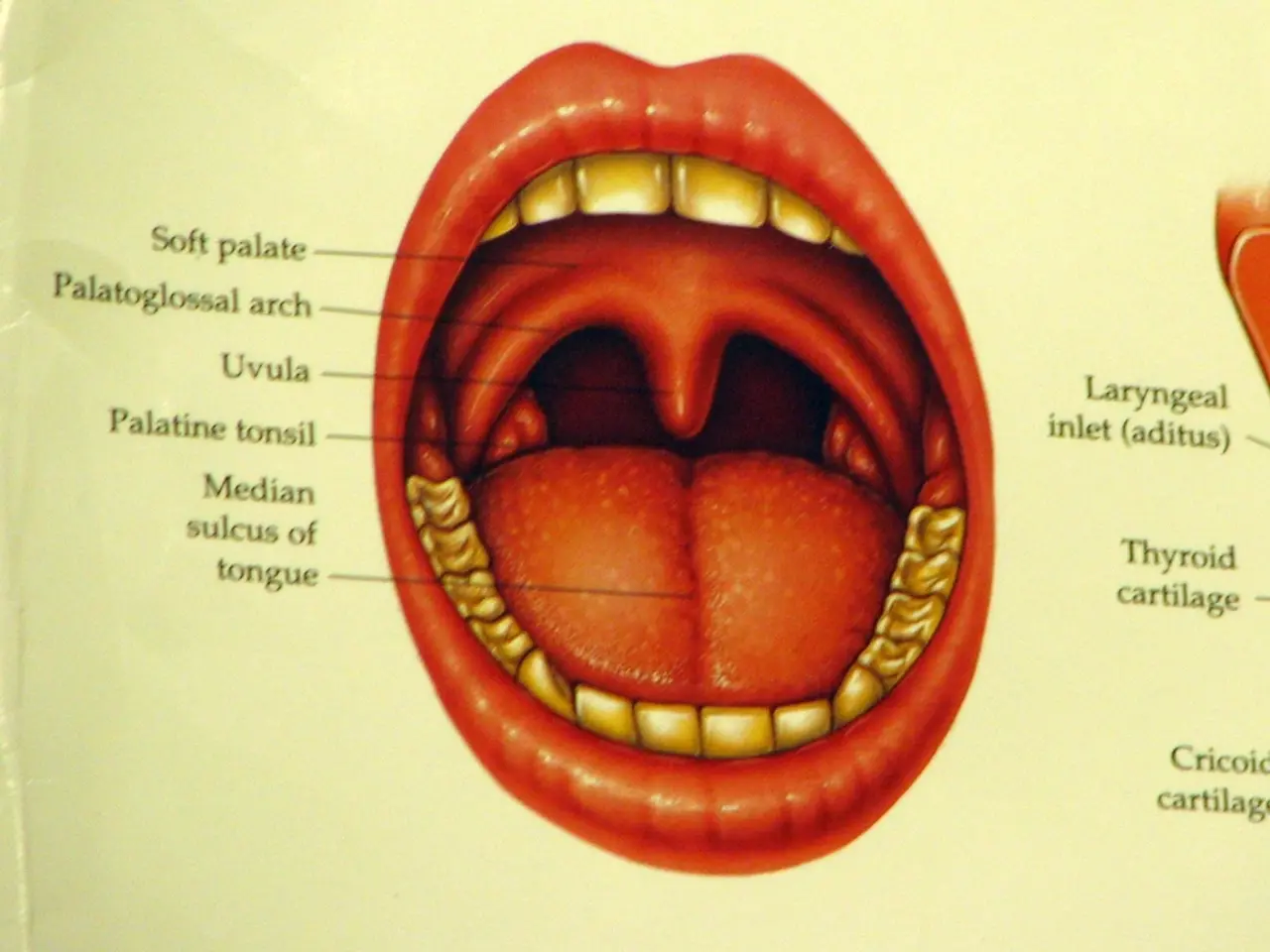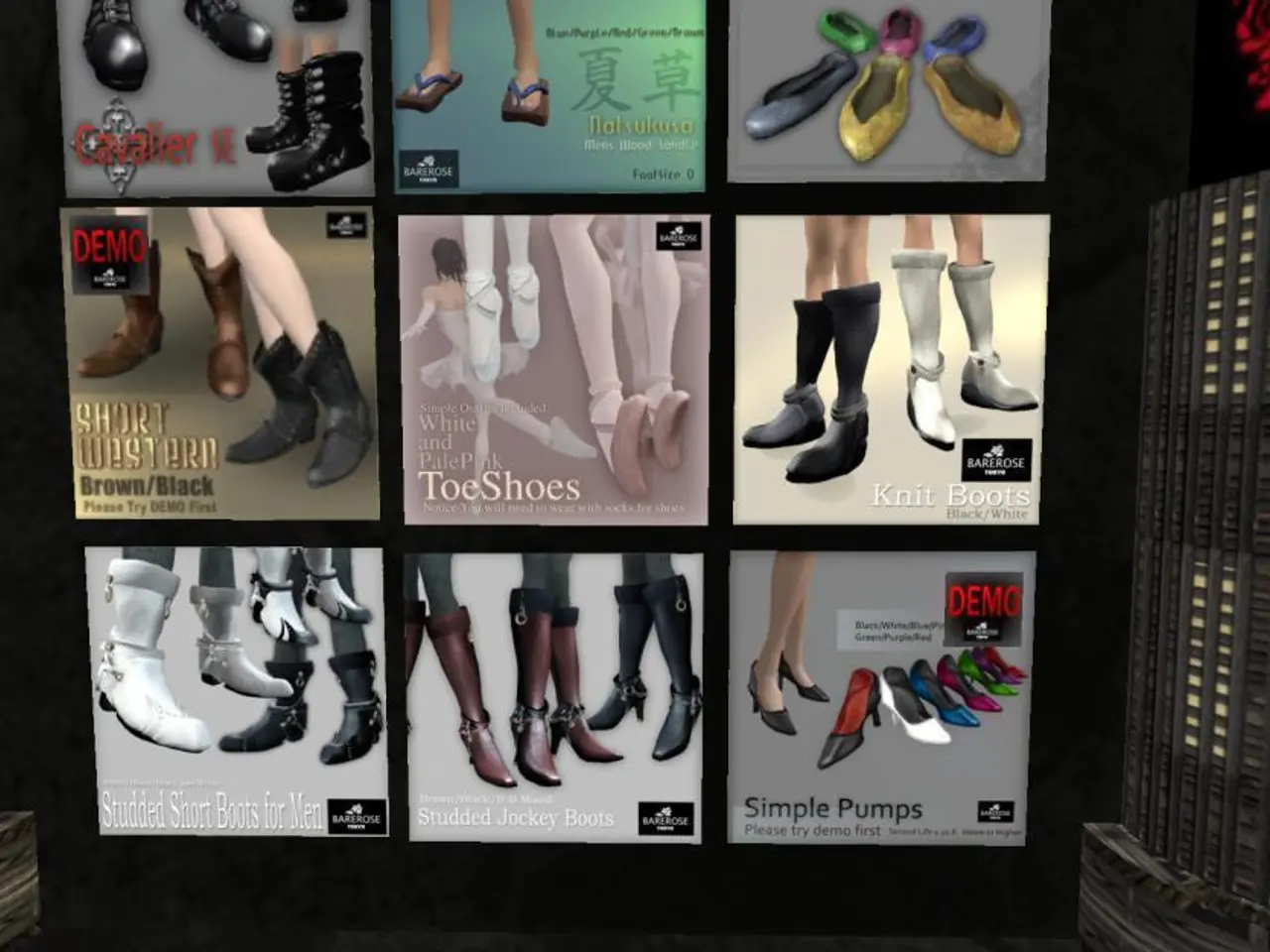City Advocate Anne Koudstaal Embraces Plastic Recycling - Bike Powered by Recyclables
In the pursuit of a greener future, a groundbreaking innovation called PlasticRoad is making waves in the world of infrastructure. This revolutionary road-building concept, developed by Anne Koudstaal and Simon Jorritsma, offers a twofold solution to the pressing issues of urban flooding and plastic waste accumulation.
The idea for PlasticRoad was born in 2013, as a means to combat urban flooding. Koudstaal and Jorritsma discovered that plastic, with its robust and durable properties, was the most effective material for this purpose. The duo's solution consists of recycled plastic for road infrastructure, a sustainable alternative to traditional asphalt roads.
The benefits of PlasticRoads are manifold. For starters, these roads are designed to reduce flooding and plastic waste. The modular, hollow design of PlasticRoads improves water drainage, reducing surface runoff and the risk of flooding. The hollow structure acts as a drainage system, channeling rainwater below the surface, thus mitigating flooding risks common in urban areas prone to heavy rainfall.
Moreover, PlasticRoads offer improved road durability. These roads are more resistant to damage under extreme weather conditions, leading to longer service life and fewer repairs. In fact, a single square metre of PlasticRoad can generate 70 kilowatt-hours, enough to power three houses.
The implementation of PlasticRoads resembles building Legos, with detachable and lightweight connections that are quick and simple to install and easily replaceable. This makes PlasticRoads a versatile solution, adaptable to various urban landscapes.
The municipality of Rotterdam supported the idea of PlasticRoads, and there was widespread enthusiasm from potential partners after a press release. However, the initial scepticism of people was a challenge during the implementation process. The Guardian wrote about the idea of PlasticRoads, highlighting its potential to revolutionise urban infrastructure.
In addition to PlasticRoads, Dutch designer Daan Roosegaarde and the company dutch company Smits Neuchatel use photoluminising technology to light up roads and bike paths, further enhancing the eco-friendliness of these innovative infrastructures.
The global plastic waste crisis is a pressing concern. Approximately 91% of global plastic is not recycled, and about 8 million tons of plastic end up in the ocean each year. PlasticRoads offer a viable solution to this crisis by repurposing discarded plastics that would otherwise accumulate in landfills and oceans.
In line with this mission, President Akufo-Addo of Ghana plans to recycle as much plastic waste as the country produces each year (1.1 million tons) by 2030. In Accra, Ghana, some roads consist of shredded and melted plastic bottles, demonstrating the potential of plastic waste recycling in urban infrastructure.
India has been experimenting with creating roads out of plastic since the early 2000s and made it mandatory in 2015 to use plastic waste at road constructions near large cities. This trend towards sustainable infrastructure is gathering momentum, offering a glimmer of hope in the fight against urban flooding and plastic waste accumulation.
In conclusion, PlasticRoads represent a sustainable innovation that tackles both plastic pollution and urban flooding challenges. By reducing plastic waste, mitigating flooding risks, and improving road durability, PlasticRoads offer a promising solution for a greener, more resilient future.
Science and technology have been applied to address climate change and environmental issues, as demonstrated by the creation of PlasticRoads. This environmental science innovation, developed by Anne Koudstaal and Simon Jorritsma, utilizes recycled plastic for road infrastructure, offering a sustainable alternative to traditional asphalt roads while addressing the problems of plastic waste accumulation and urban flooding.




